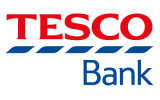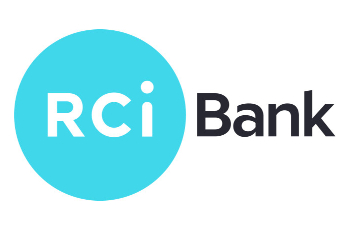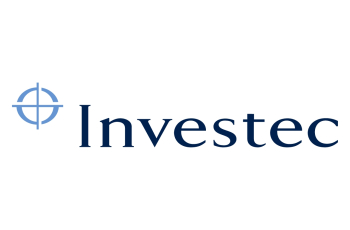This comparison simply includes all savings accounts.
Best Savings Rates in 2023
£500 bonus to boost your savings if you receive a residential purchase mortgage offer from Leeds Building Society
Chance to win £1,000. Open a new 95-Day Notice Base Rate Tracker account between 12th and 20th February 2026, deposit at least £2,000, and you could be in the draw to win up to £1,000
What to Look for in a Savings Account
When choosing a savings account in the UK, there are a few key factors to consider including the best savings rates:
- Interest rates - This is the annual rate your money will earn while in the account. Make sure to compare the Annual Equivalent Rate (AER), which shows the true annual rate with compound interest included. The highest interest rates can be over 4% AER in the current market.
- Fees and charges - Some accounts charge monthly or annual fees, fees per withdrawal or other charges that can eat into your interest earned. Try to find an account with no or low fees.
- Accessibility of funds - Consider whether you need an easy access account where you can withdraw funds anytime, or whether you can lock your money away in a fixed-rate bond for a higher return.
- Additional features - Some accounts offer perks like ATM access, debit cards, overdrafts and more. Think about which features would be useful for your savings needs.
To find the best savings account rates, you’ll need to thoroughly compare what’s on offer from banks, building societies, credit unions and other providers. Taking the time to find an account with a high interest rate and low fees can make a big difference long-term.
Use online comparison tools like our table above to quickly see which accounts offer the top rates. But don’t forget to also check the fine print for any catches like limited introductory bonus rates.
Types of Savings Accounts
There are several common types of savings accounts to choose from in the UK, and some will have better rates than others:
- Easy access accounts - These allow you to withdraw your cash anytime without penalties. Interest rates are variable and typically lower than fixed accounts.
- Popular options include basic savings accounts, instant access accounts and some cash ISAs (although you're limited to how much you can add each year).
- Look for top rates by comparing AER interest and fees.
- Fixed-rate bonds - You lock your money away for a set period of 1-5 years. In exchange, you get a higher fixed interest rate.
- If you withdraw early, you'll face penalties and loss of interest.
- Consider if you can commit your cash for the full term to earn the higher returns.
- Cash ISAs - These Individual Savings Accounts (ISAs) allow you to earn tax-free interest up to an annual limit.
- Cash ISAs can pay higher rates than normal savings accounts.
- Make sure to max out your annual ISA allowance if possible.
- Regular savings accounts - You make set monthly deposits into these accounts to save over time.
- Some pay rewards for consistent saving, like higher interest rates.
- Useful for slowly building up an emergency or investment fund.
Take some time to evaluate your savings goals and timeframe. This can help you determine if an easy access, fixed-rate or other account type best suits your needs. Don't be afraid to open multiple accounts to enjoy perks like tax-free ISA interest.
Here's a table comparing different types of savings accounts in the UK by key features:
|
Type of Account |
Interest Rates |
Accessibility |
Risk |
Special Features |
|
Easy Access Savings |
Lower |
High (Instant Access) |
Low |
Flexibility to deposit and withdraw at any time |
|
Fixed Rate Bonds |
Higher (Fixed) |
Low (Limited Access During Term) |
Low |
Offers a guaranteed return |
|
Notice Savings |
Moderate |
Moderate (Notice Needed) |
Low |
May offer better rates than Easy Access |
|
Regular Savings |
Moderate-High |
Moderate (Limit on Withdrawals) |
Low |
Rewards regular saving |
|
ISAs |
Varies |
High (Instant Access) or Low (Fixed Rate) |
Low |
Tax-free interest up to certain amount |
|
Junior ISAs |
Varies |
Low (Until Child Turns 18) |
Low |
Tax-free savings for children |
|
Help to Buy ISA |
Varies |
Low (For Property Purchase) |
Low |
Government bonus for first time home buyers |
Remember, the specifics of each account can vary between different financial institutions, so it's always important to read the terms and conditions carefully.
Top Savings Accounts by Category
Once you decide what type of savings account fits your needs, you can zero in on some of the top options in each category:
Always verify current rates being offered, as providers frequently change them in response to the competitive market. Review the terms and features carefully as well.
How to Switch Accounts for the Best Savings Rates
If you already have cash sitting in a low interest savings account, you can boost your earnings by switching to a better rate. Here's how to switch accounts seamlessly:
- Compare interest rates - Use online comparison tools like our table above to find accounts offering the highest interest rates based on your needs.
- Review fees - Double check that any fees on the new account are lower or comparable to what you currently pay.
- Open new account - Submit an application for the new savings account you want to switch to.
- Transfer funds - Request to move your funds from the old account to the new one. This can often be done via online banking.
- Close old account - Once your money is safely transferred, formally close out your old savings account.
- Destroy any old chequebooks, cards and documentation.
- Double check there are no remaining fees or balances.
- Update payments - If you have any direct deposits or automatic transfers linked to the old account, make sure to update them to the new account details.
Switching accounts may take a few weeks depending on transfer times. Try to avoid closing the old account before the funds are cleared in the new one.
With interest rates frequently changing, reviewing your savings accounts on a regular basis is wise to maximise your returns over time.
Tips for Maximising Savings
Beyond shopping around for the best savings account rates, there are other strategies you can use to boost your savings over time:
- Set up automatic transfers - Arrange for a portion of your paycheck or other funds to automatically transfer into your savings account each month. This "pay yourself first" approach makes saving effortless.
- Shop around for top rates - Check savings account rates regularly, at least annually, to ensure you're getting the best returns at all times. Move funds if you find significantly higher rates.
- Take advantage of introductory bonuses - Some accounts offer temporary rate bonuses for new customers. Be sure to fully utilise these, then switch accounts later if needed.
- Use savings platforms to compare accounts - Our comparison service allows you to easily find and compare savings accounts across all UK providers.
- Consider fixed-rate bonds for higher returns - The top fixed-rate accounts often beat the top easy-access accounts. Lock your money away to earn higher interest.
- Review fees annually - Check that any account fees you pay haven't increased. Consider switching if they have.
A little effort goes a long way when it comes to maximising savings returns. Consistently follow best practices and your account balances will steadily grow.
Frequently Asked Questions
- Are savings account rates taxed?
- For most basic savings accounts, you'll pay tax on the interest earned over your Personal Savings Allowance. This is £1,000 for basic rate taxpayers (at the time of writing).
- Cash ISAs allow you to earn tax-free interest, maximising your returns.
- How often do rates change?
- Interest rates are variable and can change frequently based on the market, sometimes month-to-month or even daily.
- Check rates regularly and switch accounts if needed to maximise earnings.
- What happens after a fixed-rate bond matures?
- When your fixed term ends, you'll likely switch back to an easy-access account. The provider may transfer your funds automatically.
- Compare interest rates again and move your money to the best available account.
Opening a savings account with the highest interest rate and lowest fees can seem complicated. But following the tips in this guide will help you maximise your returns and grow your hard-earned cash.
- What is the FSCS protection limit on savings?
- The Financial Services Compensation Scheme (FSCS) protects up to £85,000 per banking license. If a bank fails, FSCS will compensate for your lost savings up to that amount.
- Can I open more than one ISA in a tax year?
- No, you can only open one cash ISA in a tax year. But you can open a cash ISA and stocks & shares ISA in the same year.
- What are the disadvantages of fixed-rate bonds?
- Fixed-rate bonds lock your money up for a set period. You also can't add more money after opening the account.
- Does the interest rate take into account inflation?
- No. Even high interest rates can sometimes be less than the inflation rate depending on the economy. This means the real value of your money is decreasing over time.
- Is it safe to open accounts online?
- As long as the bank is UK-based and covered by FSCS protection, online accounts are just as safe as those opened in branch. Be sure to use secure wifi and passwords.
.









